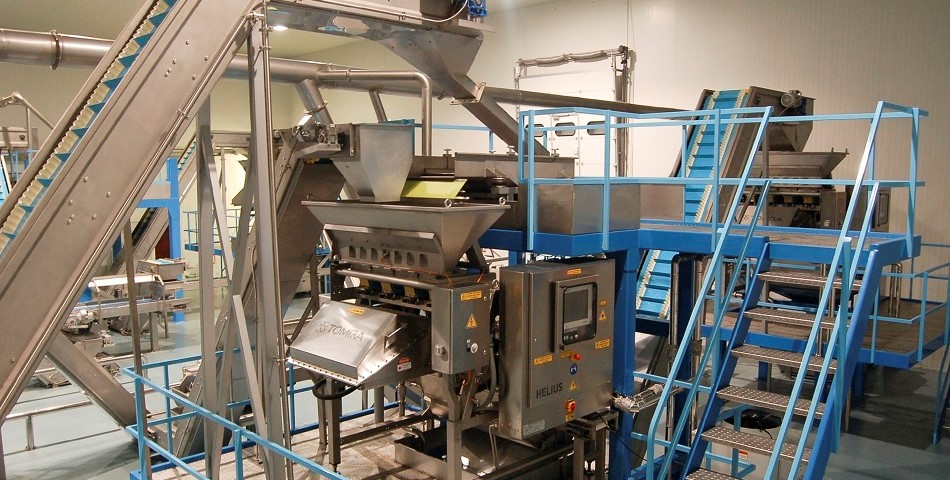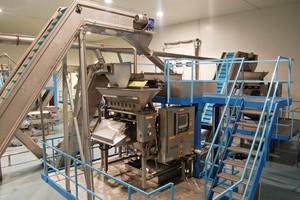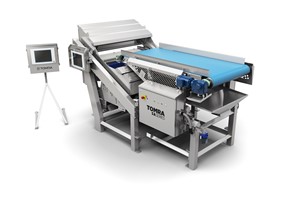Turkey’s leading hazelnut exporter, Durak Findik, has further increased its production capacity to meet export demand by investing in automation technologies. By acquiring five new TOMRA Nimbus BSI+ sorting machines, which will also ensure product quality and food safety, Durak Findik has increased to 28 the total number of TOMRA machines at its hazelnut processing facilities in Ordu, Samsun, and Hendek-Sakarya.
As Turkey’s number one hazelnut producer for two years now, Durak Findik produces 50,000 tons of hazelnut kernels annually, operating three shifts every day. Some 55 percent of this output goes to the domestic market and 45 percent is for export. The company supplies global producers, including the world’s major chocolate brands. To satisfy these world-class customers, food safety and consistently high product quality are essential. Durak Findik can achieve these high standards thanks to the advantages of automation. TOMRA Food’s sorting machines also help the company maximize efficiency by reducing food waste and increasing production capacity.
Durak Findik’s chairman, Kadir Durak, said: “We have been using TOMRA sorting machines since 2006. Now we will have two TOMRA machines at each of our facilities in Ünye and Samsun, nine in our Sakarya roasting facility, and 15 in our Hendek crushing facility, including the new TOMRA Nimbus BSI+ sorters. Installation of our new machines will be completed this month.”
Durak explained: “We increase our capacity in direct proportion to our production efficiency. In addition to providing our current customers with products at the standards they demand, we increase our production capacity by adding new customers to our portfolio. We have continued our investments in automation technologies without interruption. TOMRA’s machines have raised our product quality, ensuring that we meet our customers’ strict expectations, and have enabled us to achieve 15% additional efficiency and cost savings compared to manual sorting.”
Durak observed that the coronavirus pandemic has highlighted the importance of automation in the food industry. He said: “We already knew that every major food producer should strengthen its facilities with automation, but during this period, those who had already invested in automation had the advantage of being able to continue production without interruption. It would not have been possible for us to maintain our production at the required levels if we operated completely with manual sorting methods. And regardless of the extraordinary situation, we face at the moment, automation will always offer advantages. With consumer expectations of food quality constantly rising, automation is vital to increase product quality, as well as to improve production efficiency.”
TOMRA Food’s Nimbus BSI+ platform uses unique Biometric Signature Identification technology to detect all product defects in nuts – including insect damage, rot, shrivel, and moldy kernels – even if they are invisible to the human eye. The machine can do this, ensuring high primary-product and by-product quality, by employing both near-infrared and visible wavelengths of light.














